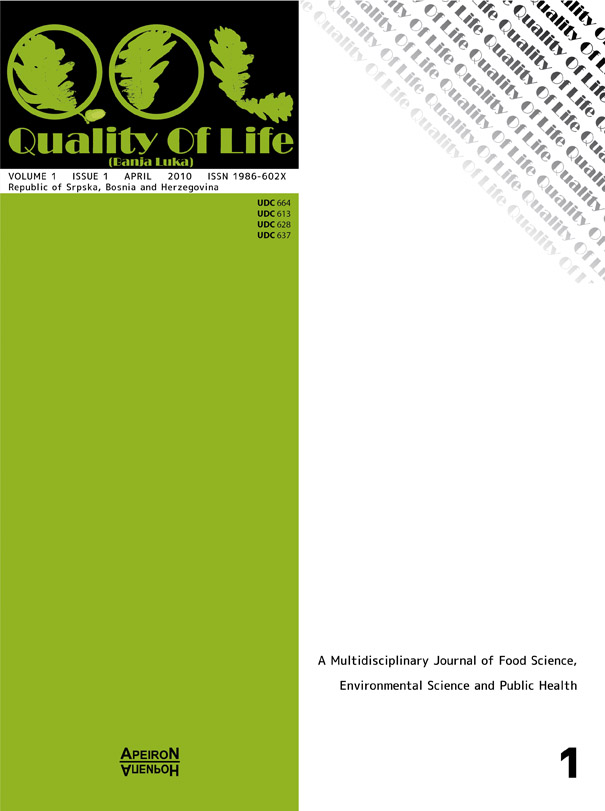Protection of Copper and its Alloys Using Corrosion Inhibitor-Literature Review
DOI:
https://doi.org/10.7251/QOL1001072TAbstract
A review of the literature dealing with the electrochemical corrosion of copper and its alloys with purpose to find the most suitable inhibitor for its protection has been done. According to their chemical composition of corrosion inhibitors are divided into inorganic and organic inhibitors. Inhibition of alloying metals are possible (such as the addition of arsenic alloy components in brass, preventing its unzincanization). The paper reviews the theoretical basis of application of inhibitors to protect metals from corrosion as well as an overview of current research application of inhibitors to protect copper and copper alloys. Benzotriazole (BTA) is most often used corrosion inhibitor for copper and its alloys in acidic and alkaline solution, because of its high inhibition efficiency. The lowest concentration of inhibitor for protection of copper in various solutions was 0.05%, and for the protection of copper in contact with steel is 0.1%. On the surface of copper and brass BTA forms a protective Cu-BTA film. However, BTA is like many other synthesized organic inhibitors is very toxic and if used in very small concentrations. It turned out that the AETD, AETDA and PTAT good corrosion inhibitors of copper mixed type with the efficiency of inhibition increases with concentration. Due to the adverse effects on the environment, health and other bodies in recent times the focus of research is transferred to the inhibiting action of biological molecules or mixtures of natural compounds called „Green inhibitors“.Downloads
Published
2010-04-15
Issue
Section
Чланци
